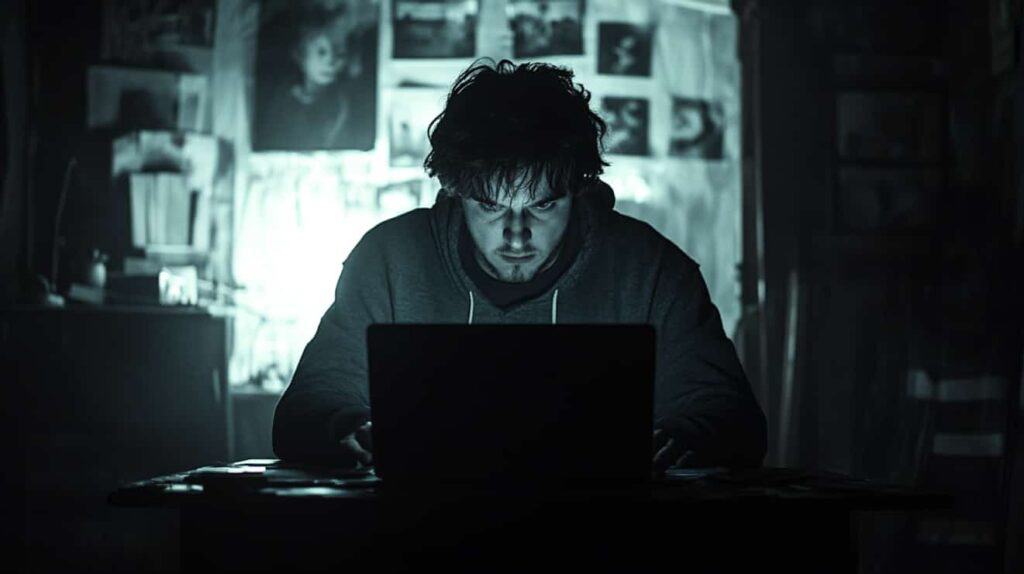Sharenting, this parental trend which is all the rage on social networks, raises many questions. Between digital exhibition And privacy children, the debate rages. But what is really behind this phenomenon that is changing the way we share our family life online?
Simple cliche From birthday parties to viral first steps videos, sharenting has become commonplace. However, its implications long-term effects on our toddlers remain unknown. Between parental pride And overexposure, the border is sometimes thin.
So how do you navigate this ocean ofimages and of stories without compromising the future of our cherubs ? What are the risks real benefits of sharenting and how to avoid them? Fasten your seatbelts, connected parents, we are going to dissect together this phenomenon that is causing so much talk!
Sharenting demystified: definition and scope of the phenomenon
Sharenting, a contraction of the English words "share" and "parenting", refers to the practice of publish regularly information, pictures Or videos of his children on the social networksThis phenomenon, which has grown considerably in recent years, particularly affects the Generation Y, these parents born with digital.
In France, as in many Western countries, sharenting has become commonplace. Although it is difficult to obtain precise figures, many experts agree that the amount of content shared online concerning children has exploded in recent years. This omnipresence of sharenting in our hyperconnected society raises many questions ethical and practical questions.
But why are parents so keen to share their toddlers' lives online? The reasons are many and complex. For some, it's simply a way to stay in touch with distant family. For others, it's a way of documenting precious childhood moments. And then, let's admit it, who has never felt this overflowing pride in the face of the exploits of his offspring?
However, sharenting is not limited to casual sharing. It also includes more intensive practices, such as creation of accounts dedicated to children on Instagram or YouTube. Some parents even go so far as to monetize the image of their offspring, flirting dangerously with the limits of exploitation.

The hidden risks behind likes: when the virtual catches up with the real
While sharenting may seem harmless at first, it actually carries many risks for our little ones. One of the most obvious dangers is the violation of privacy children. By posting personal information, photos or videos, parents create a digital footprint for their child before the child is even old enough to understand the implications.
This overexposure can have long-term consequences on the psychological development of the child. Imagine for a moment growing up knowing that hundreds, if not thousands, of people have followed your progress since you were born. This pressure can be overwhelming and negatively influence self-esteem.
Another often overlooked aspect is the risk of cyberbullying. Information shared online can be misused by people with bad intentions. Cases of identity theft There have even been reports of child abuse, where scammers use shared photos and information to create fake profiles.
Even more worrying, sharenting can attract the attention of online predators. Photos of children, even trivial ones, can be misused and end up on malicious sites. It's a chilling reality that many parents are unaware of when they innocently share photos of their little ones in swimsuits at the beach.
Finally, let's not forget the legal aspect. The right to image children is a complex subject that varies from country to country. In France, for example, parents are considered the image keepers of their minor child. But be careful, this does not give them carte blanche!
Navigating the Troubled Waters of Shared Parenting: Tips for Responsible Parents
Given these risks, should we ban all online sharing? Not necessarily. It is possible to practice responsible sharing by following a few simple rules.
First of all, think before you post. Ask yourself if this photo or information could embarrass your child in the future. A good test is to ask yourself if you would be comfortable if your own parents had shared this content about you.
Afterwards, Set up your accounts correctly on social media. Limit access to your posts to a small circle of close friends. Avoid public accounts dedicated to your children, which expose them unnecessarily.
Rrespect privacy of your child. Avoid sharing too personal moments or situations that could make him or her uncomfortable. Bath photos or moments of vulnerability do not belong on the internet.
Also, don't forget to ask your child's opinion as soon as he is old enough to understand. Involve him in decisions about his online image. This will help him develop a healthy digital awareness.
Finally, Be careful about what information you share. Avoid disclosing too specific details such as school attended, home address or usual vacation spots. This information can be misused.
| Practices to avoid | Responsible alternatives |
|---|---|
| Share bath photos or intimate moments | Limit yourself to photos of clothes and in neutral contexts |
| Create public accounts dedicated to the child | Use private groups or secure apps to share with family |
| Disclose personal information (school, address) | Remain vague about details that could identify or locate the child |
| Post without child's consent | Involve the child in sharing decisions as soon as he or she is old enough to understand |
Sharenting around the world: a global phenomenon with varied regulations
Sharenting is not a uniquely French phenomenon, it can be observed all over the world. However, legal and cultural approaches vary considerably from one country to another.
In Europe, the General Data Protection Regulation (GDPR) provides a strict framework for the protection of personal data, including that of children. Some countries, such as France, go further by specifically strengthening the image rights of minors.
In the United States, the situation is more complex. There is no specific federal law governing sharenting. However, some states have begun to legislate on the issue, particularly to protect child influencers.
In Asia, approaches are very diverse. In Japan, for example, the culture of discretion tends to naturally limit sharenting. Conversely, in China, the phenomenon is widespread, although the government has recently taken measures to regulate the use of social networks by minors.
This diversity of situations underlines the importance of a global awareness of the issues surrounding sharenting. Parents must be informed of the risks and regulations, regardless of their country of residence.

Towards ethical and thoughtful sharing
Sharenting is a complex phenomenon that reflects the changes in our hyperconnected society. While it can have positive aspects, such as strengthening family ties from a distance, it also carries significant risks for our children.
As parents, it is our responsibility to find a balance between the desire to share and the duty to protectThis involves in-depth reflection on our digital practices and a awareness of the long-term consequences of our online actions.
Adopt a ethical and thoughtful sharing, it is above all respect the integrity and privacy of our children. It is to offer them the possibility of build their own digital identity, without being hindered by a early overexposure.
So, the next time you're tempted to share that adorable photo of your toddler, take a moment to think. Ask yourself if this sharing is really necessary and what the consequences could be. Because after all, the greatest gift we can give our children is to allow them to grow up peacefully, away from the prying eyes of the digital world.
FAQ about sharenting
Yes, sharenting is legal in France but it is regulated by image rights. Parents are responsible for the image of their minor child but must act in its interest.
In France, there is no specific age defined by law. However, as soon as a child is capable of discernment (usually around 7-8 years old), his or her opinion should be taken into account.
The main risks include the violation of privacy, THE cyberbullying, THE identity theft, and potentially the attention of online predators.
Use social media privacy settings, limit sharing to a small circle, avoid disclosing personal information, and prefer secure apps dedicated to family sharing.
Theoretically, yes. Cases have already been reported in some countries. It is therefore imperative to respect your child's wishes regarding his online image.
